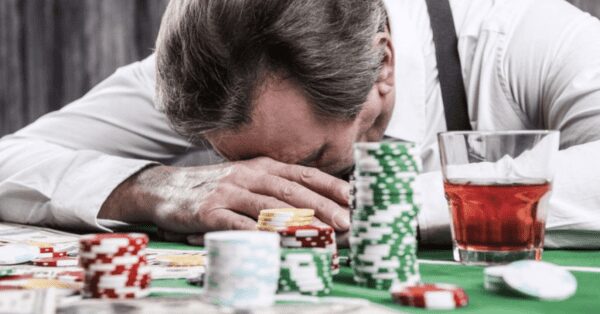
Gambling addiction: it’s a scary thing. Whether you have a loved one with a gambling problem or you are struggling to cope with a gambling addiction, it can lead to feelings of despair and being out of control. Fortunately, you’re not alone. Right now, experts estimate that about 1% of the adult population of the U.S. has a gambling problem. What’s more, research shows that about 6-9% of young people experience gambling-related issues, which means they’re more at risk than adults. If you think you may have a gambling disorder, there is help. In this post, we’ll break down the symptoms of a gambling problem, what to do if you think you might have one, and where to turn for help.
While some people may struggle with compulsive feelings around gambling, that doesn’t necessarily mean one has an actual gambling problem. In fact, a pathological gambling problem is hard for some people to define. To clear any confusion, here’s how the American Psychiatric Association defines a gambling disorder:
“Gambling disorder involves repeated problematic gambling behavior that causes significant problems or distress. It is also called gambling addiction or compulsive gambling. For some people gambling becomes an addiction — the effects they get from gambling are similar to effects someone with alcoholism gets from alcohol. They can crave gambling the way someone craves alcohol or other substances. Compulsive gambling can lead to problems with finances, relationships, and work, not to mention potential legal issues. People with gambling disorders often hide their behavior. They may lie to family members and others to cover up their behavior and turn to others to help with financial problems. Some gamblers are seeking excitement or action in gambling, others are looking more for escape or numbing.”
If the above sounds familiar, you may be struggling with a gambling disorder. If that definition doesn’t quite sound like it matches your symptoms, you may be experiencing problem gambling instead. Problem gambling is a less severe form of gambling issue but can still be troubling. Problem gambling is regarded as any behavior that disrupts your life or causes you strife. For example, if you find that you feel preoccupied with gambling or are spending more time or money on it than you’d like, despite severe consequences, you may be experiencing problem gambling.
Gambling addiction can be challenging to understand. Here are some things to know about gambling disorders, according to the National Center for Responsible Gambling (NCRG):
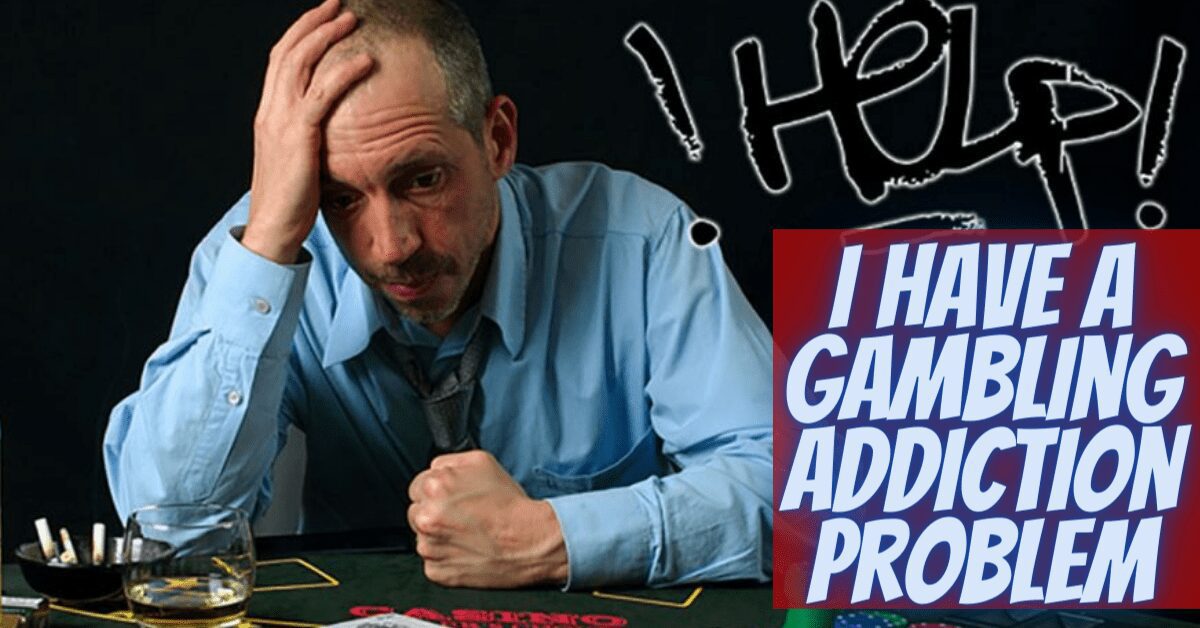
Gambling addiction does not discriminate. Nobody can predict who will develop problematic gambling behavior. Many people who develop problematic gambling behavior are otherwise reliable, responsible, dependable people. There are, however, factors that may trigger a gambling problem or lead to a worsening in existing gambling behavior. These include:
Some studies have shown that people who have addictive personalities may be more at risk of developing a host of addictions, including gambling problems. According to American Addictions Centers (AAC), the traits of an addictive personality are as follows:
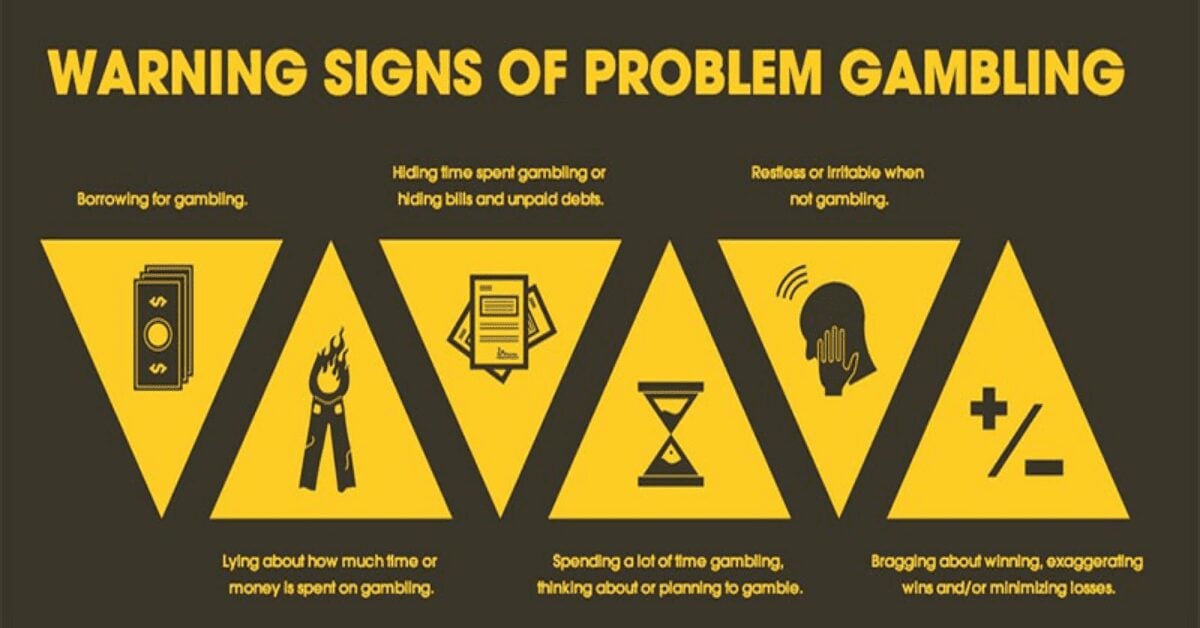
To properly diagnose gambling addictions, physicians look for at least four of the following over the past year:
People with gambling disorders may experience periods where symbols lessen or alleviate between periods of intense and disruptive symptoms. While gambling disorder has a genetic aspect (it tends to “run in the family”), many environmental factors can contribute to or exacerbate a natural tendency. Symptoms may arise in early adolescence, late adulthood, or any time in-between. Both men and women are susceptible.
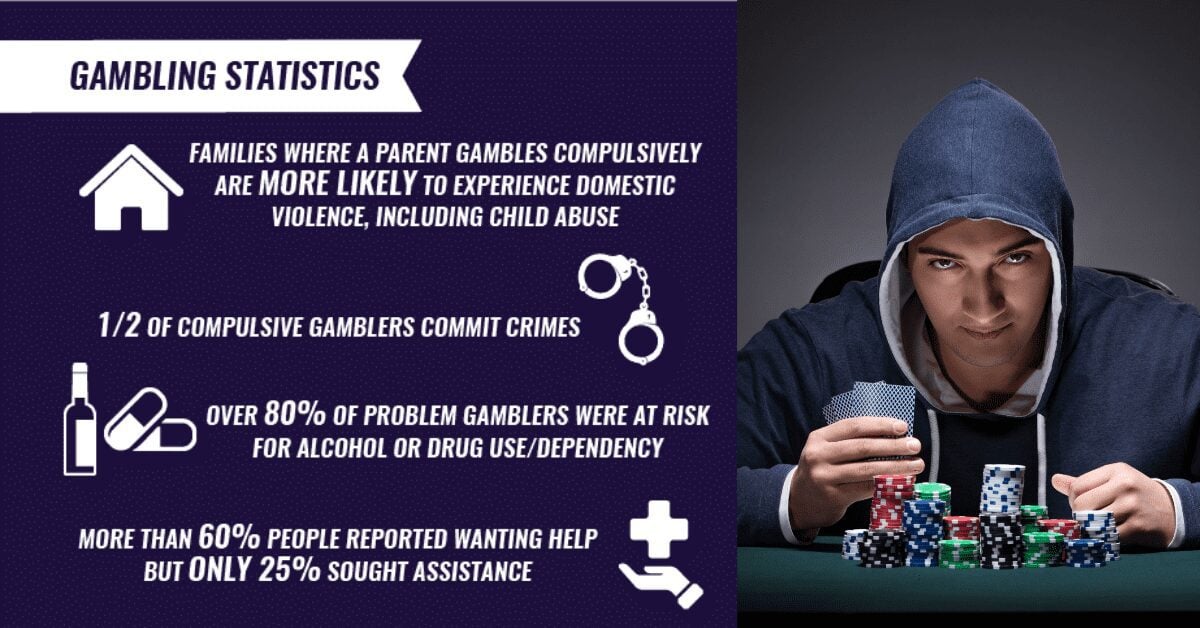
If you have a loved one facing a gambling addiction, you’re probably wondering what to do and how to help. This is a delicate situation, though, and what you do matters just as much as what you don’t do. Here’s a simple guide for what actions to take:
Do
Don’t
In some cases, counseling may be helpful for family members struggling with someone who gambles. Any form of addiction, including gambling addiction, is stressful for both the addicted person and the people who love him or her.
Counseling can help you see the person’s strengths and remember why you love him or her. It can also help you decide which actions you need to take to protect yourself and maintain your health and wellbeing.
There’s a strong correlation between problematic gambling behavior and suicide. A recent study conducted by Academics at Lund University in Sweden found that people with gambling addiction problems are 15 times more likely to commit suicide than people without gambling addictions. Specifically:
The study found that suicide rates increased 19-fold among men between the ages of 20 and 49 if they had a gambling problem and by 15 times among men and women of all ages.
If you or a loved one are experiencing thoughts of suicide, it’s essential to take the situation seriously. For more help, contact the National Suicide Prevention Lifeline at 800-273-8255.
Myths and Facts About Having a Gambling AddictionThere’s a lot of misinformation about gambling problems. Below, we bust some of the most common myths and provide a straight answer instead: |
|||||
| Myth: You only have a gambling problem if you gamble every day.
Fact: People with gambling problems may gamble frequently or infrequently. Gambling is defined as a problem if it causes problems in a person’s life. |
|||||
| Myth: As long as the gambler has enough money to support their gambling habit, gambling is not a problem.
Fact: The problems caused by excessive gambling go far beyond the financial. For example, people who spend excessive time gambling may experience relationship issues, legal issues, job loss, anxiety, and depression, and are at increased risk of suicide. |
|||||
| Myth: You can only develop a gambling problem if you are irresponsible or weak-willed.
Fact: Gambling problems do not discriminate. They are just as likely to impact people with a history of responsibility and strong will as they are anyone else. |
|||||
| Myth: If a person’s partner develops a gambling problem, it’s likely the partner’s fault.
Fact: People with gambling addictions (and other addictions) try to offset the shame of the addiction by justifying their behavior, and blaming others is a standard tool. While blaming their partner may help the gambler avoid taking responsibility, it is not an accurate reflection of the underlying issue causing the gambling problem. |
|||||
| Myth: If you love a problem gambler who creates gambling debts, you owe it to that person to pay the debt and bail them out.
Fact: Gambling can be a shameful experience, and it’s tempting to opt for a quick-fix solution that may appear to be the right thing to do. If you bail a gambler out of debt, though, you may inadvertently make the situation worse by enabling their destructive behavior to go on. |
Overcoming a gambling problem is a process, and the most significant step is acknowledging you have a problem in the first place. If you have lost a great deal of money or lost essential relationships along the way, this step requires a tremendous amount of courage. Don’t worry – you don’t need to go it alone. Many people have been in your exact position. To start recovering from your gambling addiction, take these steps:
Does your gambling get worse when you feel lonely, bored, anxious, or stressed out? For many people, gambling is a way to self-soothe during distressing moments. Fortunately, it’s not the only way to do that. There are many healthier ways to manage your moods and keep yourself feeling stable. We recommend exercising, spending time with friends or family members who do not gamble, learning a new hobby, or practicing mindfulness or other relaxation techniques.
A support network is critical for anyone trying to overcome gambling addiction. With this in mind, reach out to friends, family, or members of a gambling support group. Alternately, consider joining hobby groups (like a book club or soccer team) or volunteering for a cause you believe in. The more non-gambling support tactics you master, the less likely you are to continue struggling with compulsive gambling behaviors.
While seeking non-gambling support is important, it’s also critical to participate in a peer support group specifically focused on gambling addictions. To find one near you, consult the state-by-state meeting list for Gamblers Anonymous or speak to a local health-care professional.
If you feel your gambling addiction is severe or will be challenging to overcome, enlist the help of a professional therapist. Underlying mood disorders, like depression, stress, anxiety, or substance abuse, can trigger or exacerbate gambling problems. Even after you’ve kicked the gambling disorder, the underlying mood disorders may persist, so it’s wise to plan for this and have professional support at the ready.
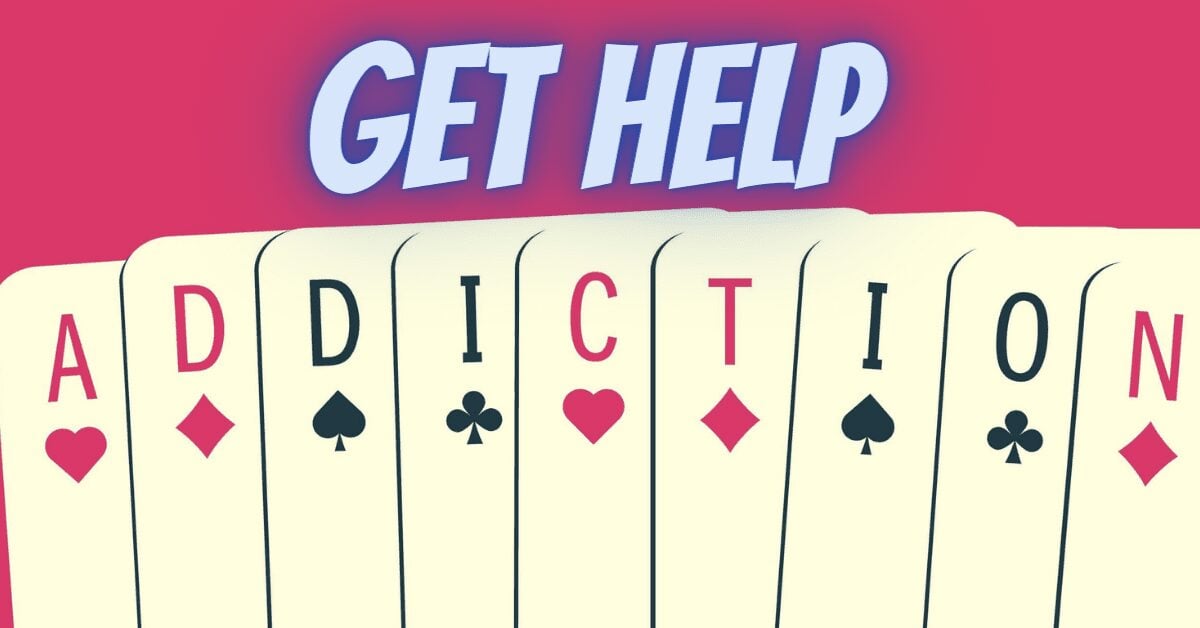
If you or a loved one struggles with a gambling problem, it can be challenging to see the other side, where recovery is possible. One of the best ways to get into recovery is to seek professional treatment. Unfortunately, there’s a lot of stigma around mental health services and treatment. Seeking professional treatment does not mean that you are weak or unable to handle your life independently. Gambling addictions are a complex problem, and professional help can be necessary to navigate them.
Remember: every gambler is unique, and no two recovery paths are structured the same way. To find the best option for you, talk to a doctor or mental health professional about treatment options, including the following:
Residential or inpatient treatment and rehabilitation programs. These programs cater to people with severe gambling addictions, who are vulnerable to relapsing into their gambling habits unless they have 24/7 support. These programs offer an intensive combination of therapies, including treatment for underlying conditions that may influence or lead to compulsive gambling (such as substance abuse, depression, anxiety, OCD, ADHD, or bipolar disorder, which problem gambling is sometimes a symptom of). These programs typically also include aspects of talk therapy, medication, and lifestyle changes.
Cognitive-behavioral therapy. According to the American Psychological Association, “Cognitive behavioral therapy (CBT) is a form of psychological treatment that has been demonstrated to be effective for a range of problems including depression, anxiety disorders, alcohol and drug use problems, marital problems, eating disorders and severe mental illness. Numerous research studies suggest that CBT leads to significant improvement in functioning and quality of life. In many studies, CBT has been demonstrated to be as effective as or more effective than other forms of psychological therapy or psychiatric medications.” For gamblers, CBD treatment may identify and change unhealthy gambling patterns and identify ways to cope with gambling urges.
Family and marriage therapy and financial counseling. These treatments are ideal for helping gamblers sort through the issues created by habitual gambling and lay the foundation for a life spent in recovery.
If you’re struggling with a gambling addiction, you don’t have to navigate it alone. The tips in this article can help you navigate the experience. If you need additional help, we’ve provided a list of resources at the end of this article.
Related: (1-800-GAMBLER Team Up With The National Council on Problem Gambling )
SAMHSA’s National Helpline – 1-800-662-HELP (4357)
American Psychiatric Association: https://www.psychiatry.org/
National Center for Responsible Gaming: https://www.icrg.org/
NATIONAL PROBLEM GAMBLING HELPLINE: 1-800-522-4700